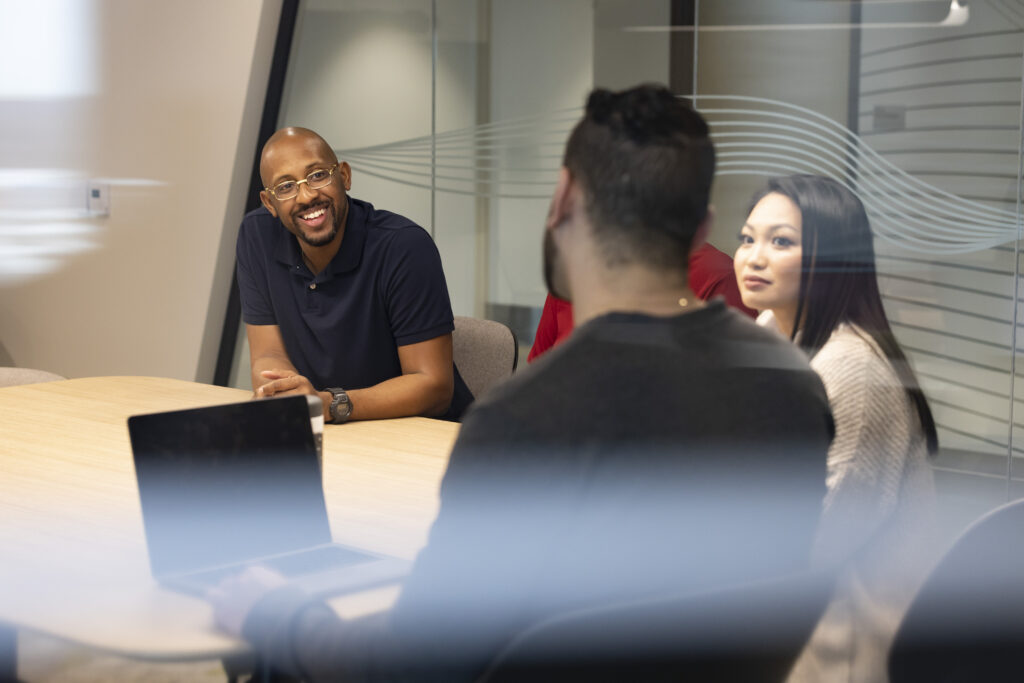Transforming the future of education through a social justice lens.
Faculty in CPS’s EdD program prioritized compassion and connection in advancing curriculum development and research in a variety of education settings. As a result, 92% of graduating EdD students actively participated in change initiatives focused on social justice.
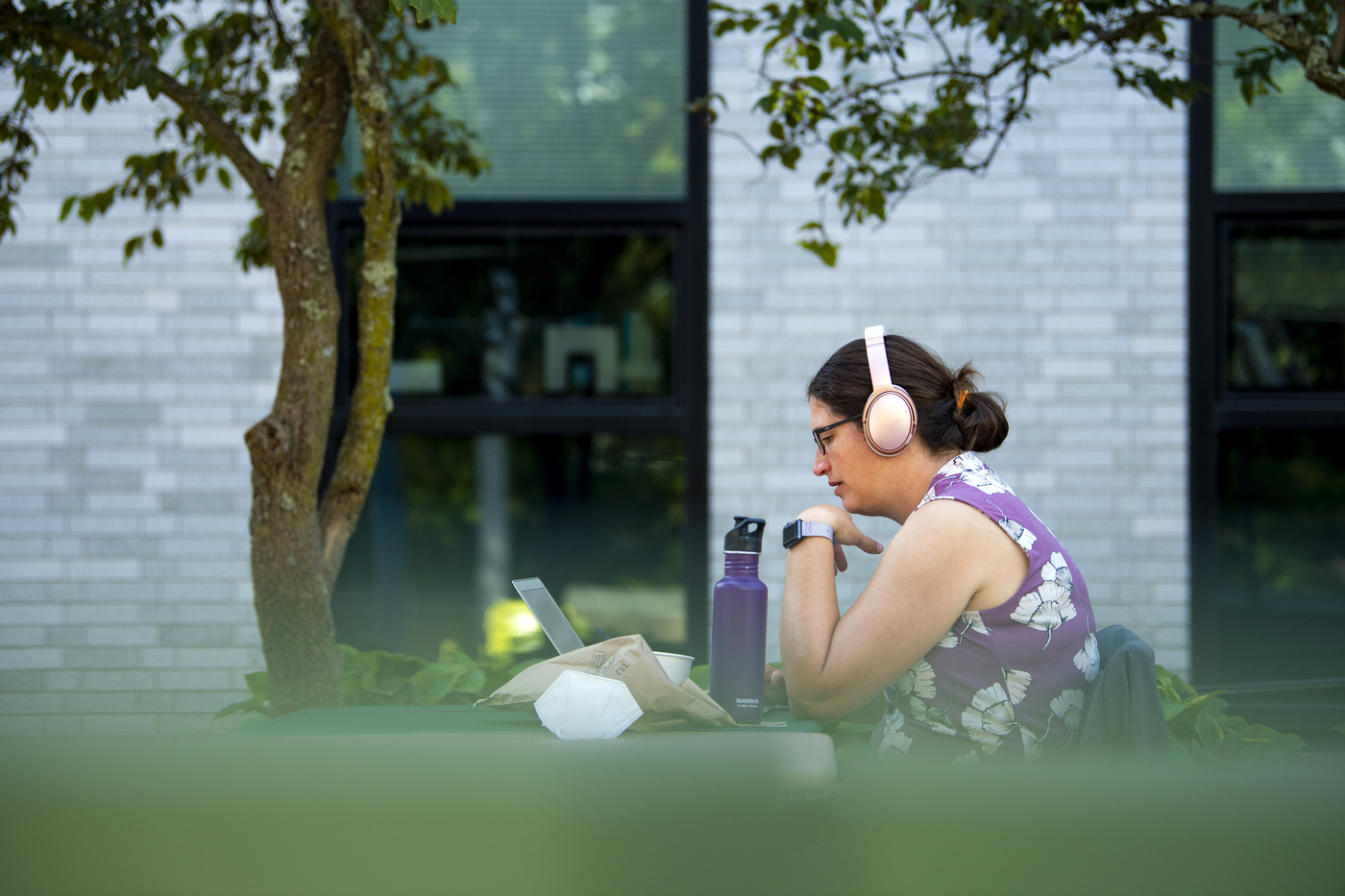
Learn more in this recently published paper “Developing and Sustaining Northeastern’s EdD Program During and Post Pandemic” in Impacting Education.
Journal on Transforming Professional Practice:
https://impactinged.pitt.edu/ojs/ImpactingEd/article/view/409/421
Writing your Problem of Practice & Application Support
This session is designed to help you choose your own problem of practice and write about it in your application to Northeastern. Every student in our program chooses a problem of practice and uses cycles of investigation to find innovative and systematic solutions to create change in their workplace and/or community.
Find more online events: Here
Writing your Problem of Practice & Application Support
This session is designed to help you choose your own problem of practice and write about it in your application to Northeastern. Every student in our program chooses a problem of practice and uses cycles of investigation to find innovative and systematic solutions to create change in their workplace and/or community.
Find more online events: Here
What Can You Do with an EdD?
Learn how a Doctor of Education can help you further your career, advance within your organization, and create meaningful change within your community. You’ll also learn more about Northeastern’s career design services and how they help you prepare for your future career moves.
Find more online events: Here
Discover Northeastern EdD
Join us for the unique opportunity to hear from our education faculty who teach in our global campus network. We’ll discuss the program curriculum, balancing work and school, developing a problem of practice, and more.
Find more online events: Here
Discover Northeastern EdD
Join us for the unique opportunity to hear from our education faculty who teach in our global campus network. We’ll discuss the program curriculum, balancing work and school, developing a problem of practice, and more.
Find more online events: Here
A “College of Access”
“What we are essentially doing is incorporating a value for lifelong learning,” explains Erin Clair, Associate Dean of Undergraduate Programs. “This is a story of empowerment, because not all students are going to have a linear path and access to opportunity.”
Northeastern University’s College of Professional Studies (CPS) helps nontraditional learners achieve higher levels of education that open professional doors. This work is deeply rooted in the University’s founding principles of urban engagement and experiential learning and is set to have a ripple effect for individual communities and national workforce development goals.
“This is the ‘access mission of CPS’. Our purpose is clear, regardless of the jargon: we are creating access however we can. It’s a Robinhood-type story, its mission driven, and it’s why I’m here,”
– Erin Clair
CPS Executive Director of Marketing and Communications, Joe Brock, said, “Dating back to the founding of CPS’ (formerly known as University College), we have provided opportunities for working adults to complete their bachelor’s degree, meeting them where they are with educational excellence, and flexibility to enable their educational goals. This hasn’t changed over the years as we continue to expand and grow our partnerships with community colleges and organizations that focus on access for underrepresented communities.”
The college has amassed over 40 partnerships with community colleges across the country. Most are articulation agreements, which maximize credit transfer into Northeastern University and count towards a higher degree. But some of the partnerships exemplify more resourced options, include Middlesex Community College, Roxbury Community College, and Miami Dade Community College, where each comes with either public grants or philanthropic sources for scholarship and provides additional resources for students. This, coupled with the University’s unique placement as the number one University in coop experience [as listed by US News], becomes a compelling offering.
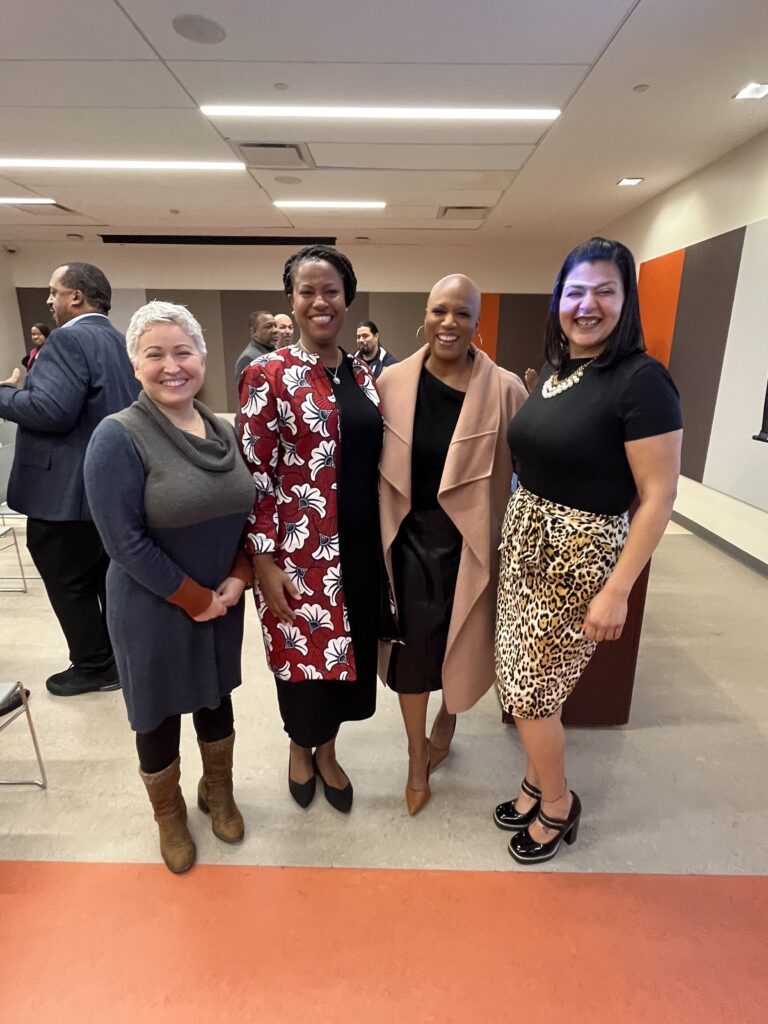
Clair’s team is responsible for the entire program that creates these partnerships, which began in 2017 when Liz Zuilick, formerly CPS Associate Dean of Undergraduate Programs and now Vice Chancellor of Strategic Planning & Projects, spearheaded a partnership between CPS and Middlesex Community College (MCC). The partnership, which is currently in its fifth and final year, received a $4.4 million-dollar grant from the National Science Foundation (NSF) to award scholarships to low-income and under-represented minority students in biotechnology who participate in an accelerated Associates to Masters’ Degree Program, known as “A2M.”
As an example of impact, in 2021-2022, the partnership with MCC served 40 students at the Associate’s level, 48 at the Bachelor’s level, and 14 at the Master’s level, with 92 distinct students. A total of 34 students graduated from one of these degree programs within the calendar year.
In 2020, Northeastern University’s President Joseph E. Aoun established the ‘Experience Unleashed’ strategic vision, which committed the University to a mission of equitable access across its global campus network. Part of this effort, known as the ‘Impact Engine’ initiative, formally adopted the A2M bachelor’s completion program as an approach to meeting its goal of ‘making the world a better, more equitable place through access to higher education’.
The University is currently working on replicating the approach at a faster pace throughout its global campus network, focusing on partnering with community colleges that are located in proximity to Northeastern campus locations. The hope is that many of these partnerships will grow to attract additional resources that will benefit students.
As testament to the college’s agility in making higher education accessible beyond barriers, the approach has taken many forms – A2M, eA2M, PlusOnes, and Pathways are all common names associated with it. The overarching focus is the same: to provide a “bachelor, and beyond, completion initiative” aimed to equip learners with whatever it takes to provide them with professional opportunities, while simultaneously removing barriers to higher education.
Who’s Behind the Effort
“Through the eA2M Model, we plan to reach learners in the regions surrounding our global campus sites. In addition to experiential opportunities, we offer funding support, support with childcare, and 1:1 student coaching that will help students navigate the complexities of college learning!” said Chris Cook, Director of Impact Engine, Professional Programs, who works to grow partnerships through what is referred to as the Experiential Associates to Masters (eA2M) model.
“We strategically align our programming to be in fields where there is high demand and pathways to economic viability. We know there is significant underrepresentation in high skill, high paying jobs, we intend to support incredible learners to develop those skills and access those jobs! This objective is tied to national workforce development and that approach is championed by Northeastern.”
– Chris Cook
Oftentimes, the students who are taking advantage of these partnerships are first generation college students, the first ones in their family to attend college or university.
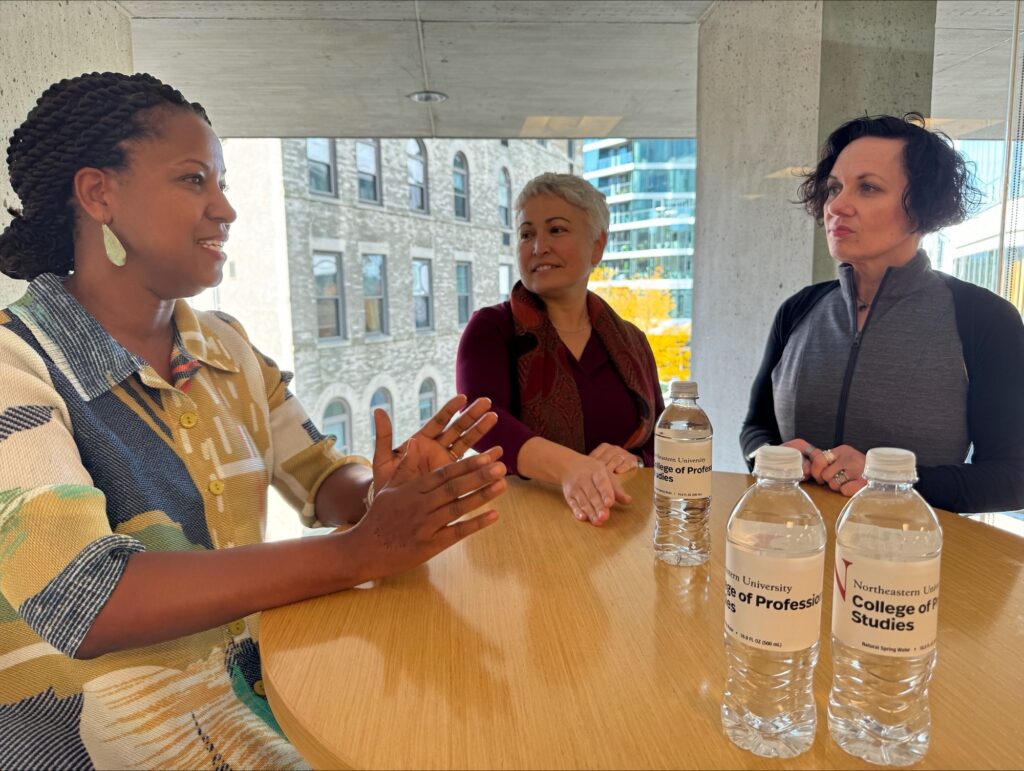
“When you are the first person in your family to pursue a college degree, you do not necessarily have access to information on how to best navigate a complex college system.”
– Earlene Avalon, Associate Teaching Professor and Director of the Lowell Institute School, who recently helped launch CPS’s newest Bachelor completion partnership with Roxbury Community College.
The partnership is supported by the $1M Federal grant awarded to the application that Avalon co-wrote with Francesca Grippa, Professor and Associate Dean of Research for CPS Undergraduate Programs. The provides 30-50 students scholarship opportunities in STEM related fields of healthcare, technology and biotech.
Avalon is herself a first-generation college grad who understands the barriers faced. “This can be a huge barrier, coupled with the fact that some students have to work full-time or are raising a family, all while pursuing their degree.” she said.
Each enriched partnership aims to be tailored to the socio demographic needs of the student body. In the case of Miami Dade Community College, the partnership aims to provide childcare to accommodate the need voiced by the prospective student body, many of whom are young mothers trying to gain professional opportunities through higher education. Wherever possible, the partnerships are funded by a third party like a state or federal grant that supports workforce development.
“This work is about building a pathway to prosperity not just for students, but also prosperity for the country because of this talented workforce that we know nothing about,” said Deb Jencunas, one of many CPS change agents at the helm of forging these community partnerships. As Director of Pathway Partnerships, Jencunas primarily works to build partnerships that support bachelor completion programs.
“Because they lack access to finance, they haven’t had the opportunity to develop professionally beyond high school or have greatly struggled to do so. What would our world look like if access wasn’t a challenge? That’s why I do this.”
– Deb Jencunas
When asked why Northeastern University is so attractive to learners, Jencunas explains that CPS’s direct connection to industries and professional fields offer students an immediate benefit of a network.
Northeastern’s Alumni network is also actively supporting this model. CPS Director of Development Tara Esfahanian says, “Many of our donors are alumni, themselves once in the position of being first generation college graduates that were helped by this approach. They are usually eager and excited to give back in the same way they were given to.”
The Navigator
One of the most unique aspects of the funded partnership model is in the form of direct support from student academic support coaches called ‘CPS Navigators’, whose role is to walk each student through the process of onboarding into a program at Northeastern University.
Mary McCarthy, CPS Director of Strategic Partnership of Funds, seeks to activate philanthropic support from a variety of sources including federal monies, community college partnerships, corporate and foundations sponsorships, and the tremendous generosity of alumni and friends, to enable students to enter and excel in higher education.
“That support can come in many forms including endowed or current-use scholarship awards, in addition to wrap-around services that provide students with textbooks, laptops, and personnel support in the form of the Navigator role. A Navigator is a CPS employee whose responsibility is to partner with students to help them navigate the unique complexities of higher ed administration. CPS is pleased to have spearheaded this model for success, wherein A2M students have a steadfast ally in navigating the various hurdles of admissions, enrollment, matriculation, and degree completion. In different cities, student experience unique region-specific needs. The Navigator can be particularly useful in diagnosing the nuanced needs of a given region, allowing us to successfully clear those unique hurdles. While I have only been at Northeastern a short time, in my 26 years in Higher Education I have never witnessed a more robust and generous student support infrastructure.”
– Mary McCarthy
Tahir Abbas is the Navigator for the MCC A2M Program Biotech who facilitates student transitions from Middlesex Community College into Northeastern University. His office is located within MCC and students can drop by to visit him.
Visibility is really important, by having this office and being located at the community college, we are demonstrating how committed and accessible the program really is.”
– Tahir Abbas
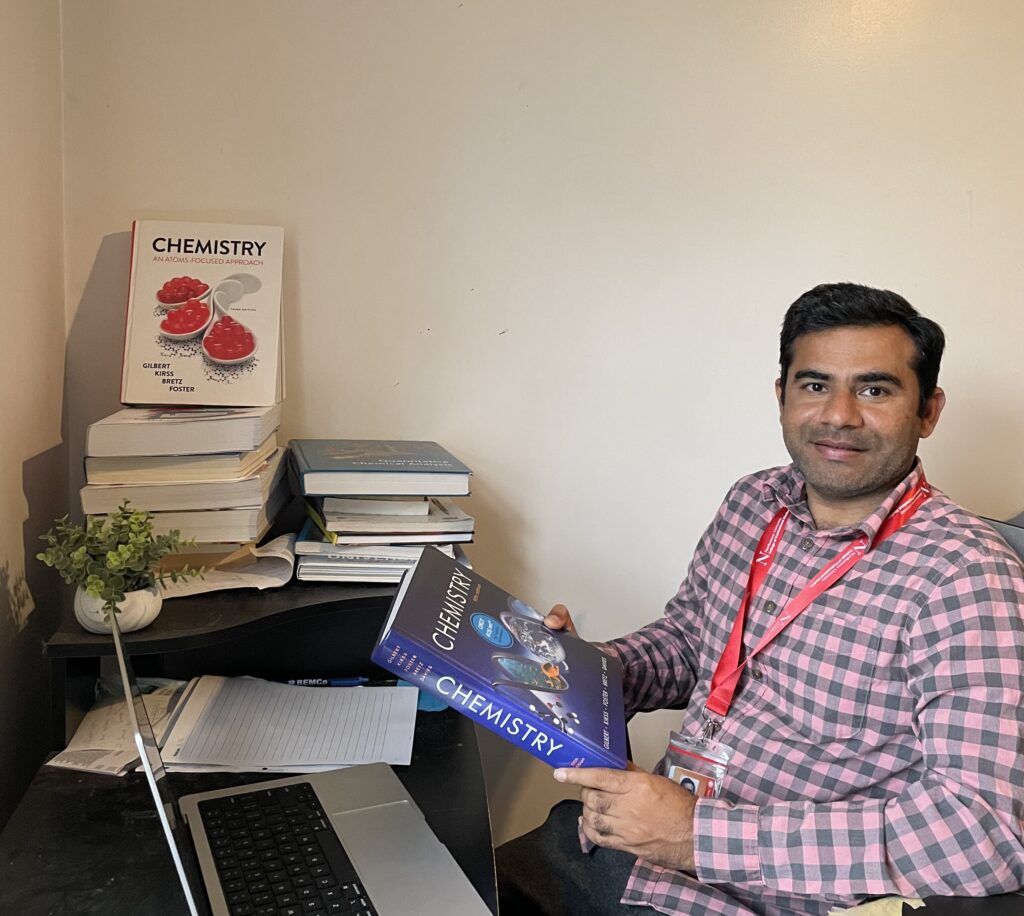
Abbas helps at every stage of the process, from the application process all the way to placing them in a job internship and anything else in between, including aligning the student with financial assistance, helping with funding tuition, textbooks, or parking passes. Tahir also helps students determine their eligibility for financial support. For example, the MCC Tech program provides students with $5k per semester with a maximum cap of $10k per year. The typical out-of-pocket cost to students is $2-3k per semester. Sometimes, Tahir will work to find alternative funding sources to cover even that.
The navigator role is a major factor in the success of the whole approach. The value lies in specialized attention tailored to the needs of each student.
“If a student comes to me, I never send them away. Universities have complex financial aid and enrollment systems, but if students come to me, I help them figure that out. Once they trust me, they begin to believe they can accomplish bigger goals with this sort of support behind them.”
– Tahir Abbas
Abbas related that the hardest part of the job can be quite labor intensive: delivering textbooks. “Sometimes our students are single parents, or pregnant, so I deliver to the house. And I don’t mind because it helps, and I like that.” Abbas continues, “The students are supposed to return those books at the end of the semester. In December, I will drive again to collect them!”
It’s all in a day’s work for the CPS team that is helping students achieve goals they never knew were possible.
Snell Library Tour for CPS Students
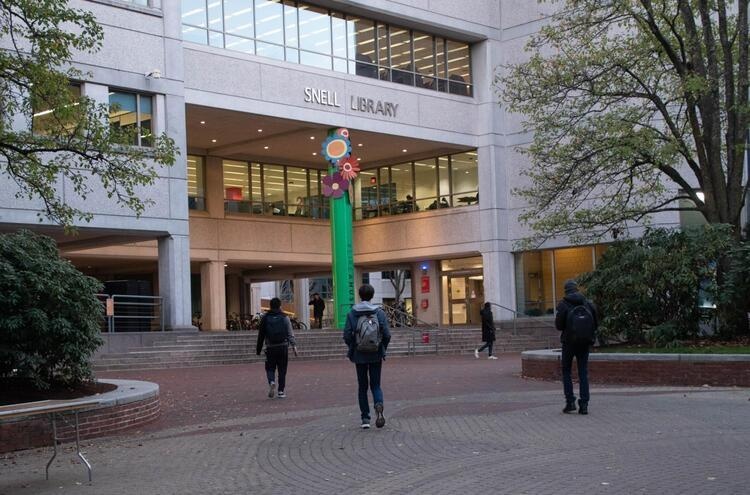
Meet CPS Librarian Anaya Jones outside Snell’s temporary entrance on the west side of the building for an up-close and personal tour of the library! Please complete this registration form so we know you’re coming. Thank you!
The Student Perspective: The shock and confusion that comes with being new to America
Oishika Hota, MS Media Innovation and Data Communication, class of 2024 Graduate, talks about her experience as an International student
One of the great privileges I have been offered is that of exposure. Starting from school all the way to graduate school here at Northeastern, every step I have taken has expanded my world significantly. But nothing has done the job like moving my life halfway across the globe.
Coming from Mumbai, Maharashtra, the most populous city in India, a land known for its vast array of cultures, languages, and traditions, I thought I had seen it all. However, the U.S. presented an even more intricate mosaic of backgrounds, beliefs, and practices. In India, a fusion of varied traditions and customs maintains its quintessential Indian identity despite the diversity. On the other hand, the US displays an intricate mosaic, presenting influences from diverse corners of the globe, resulting in a distinctive cultural mix. I feel like I am part of a melting pot, and navigating this diverse tapestry is one of my favorite challenges as an International Student in America.
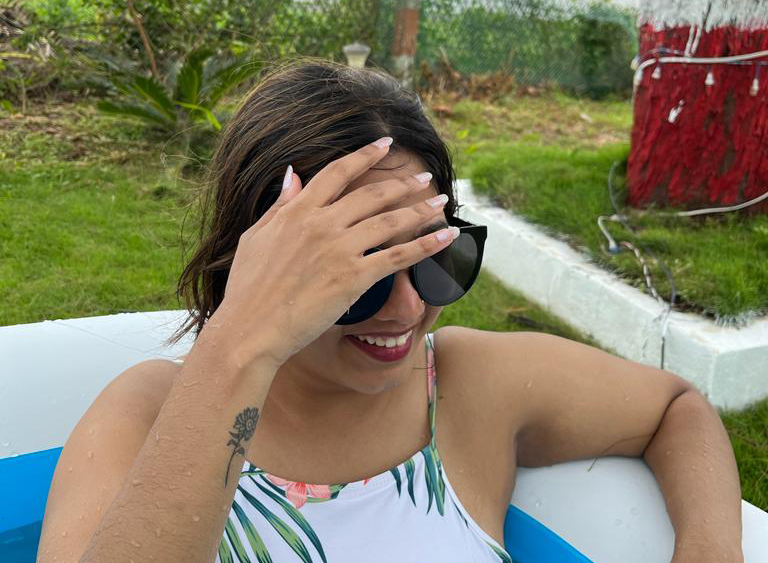
“There is a difference between knowing something and actually experiencing it.”
Oishika Hota
Whatever I knew about the U.S. before landing here was from my consumption of American pop culture. As a fan of chick flicks, Legally Blonde and Pitch Perfect shaped the way I perceived the American Collegiate experience. Apart from that, I had also watched enough TV shows and movies to anticipate a lot of what was thrown at me: the small talk, the food, and the cold weather. When Mindy Kaling made New York winters seem warm compared to Boston in “The Mindy Project,” I knew I had to be prepared. But there is a difference between knowing something and actually experiencing it.
For all the small talk America offers, I had a lot of trouble making friends — especially as a graduate school student, where forming a community in a class full of people from several countries is, to put it simply, hard. Overcoming these challenges required me to step out of my comfort zone. I began attending social events organized by the university and joining clubs related to my interests. It was nerve-wracking at first, but I pushed myself to strike up conversations, even if it meant starting with a simple “hello.”
I’m not a hater of American food, but there are a few dishes that just don’t hit the mark for me. Especially when they’re missing that spicy, flavor-packed kick that Indian dishes usually bring to the table!
While ingredients and restaurants can be found in Boston, the cost of materials and lack of variety ends up killing the taste. Even though I have learned how to cook, nothing beats the taste of food cooked in your actual home.
The cold, again, was something I was mentally prepared for, but coming from a tropical country, acclimatization did not come easy. I could finish bottles of moisturizers, but I did not understand why my skin was still dry, why I was still feeling cold after wearing my thickest jacket, which brand would protect me the best, and why it was so dark at 4:30 p.m. Despite the struggle, I found ways to keep pushing through. You find little moments of joy, like a warm cup of hot chocolate, a cozy night in with your favorite food and a movie.
With practice, my problems have changed. I feel better prepared for my second winter here, I am ready for the lull and sadness that comes with the darkness. It’s about acknowledging that this period is difficult, allowing yourself to feel it, and seeking support when needed. Whether it’s talking to a friend or a professional, sharing the burden of these winter blues can make a world of difference.
But at the end of all this, the hardest shock hasn’t been cultural, but that of the magnitude of my homesickness. Being far away from the close-knit family and the familiar comfort of home is a struggle. Learning to adapt to a new culture is by far not an easy task. The difficulty is what has sparked resilience in me and pushed me to explore this new landscape; to develop a new support system despite the cultural and the often not-so-edible reminders that I am in a country that is not mine.
“Whether it’s talking to a friend or a professional, sharing the burden of these winter blues can make a world of difference.”
Oishika Hota

Moving away from home has been the hardest thing I’ve ever done. But it has also been one of the most enriching experiences of my life. It was a slow but rewarding process. As I opened up and made an effort to bridge the cultural gaps, the move didn’t seem so bad.
Looking back at the whirlwind of the last year, I’m giving myself a mental high-five. The hurdles and bumps were tough, but they’ve turned me into a stronger and wiser version of myself. And for that, I am immensely grateful.
Innovation Day 2023
Innovation Day is an exciting day-long symposium that invites full-time and half-time Faculty and Staff interested in building new programs and new learner services that are in line with the College’s strategic aims, to submit ideas to enhance our programs and learner experience at scale.
NOTE: This event is for the College of Professional Studies (CPS) Faculty & Staff only.
